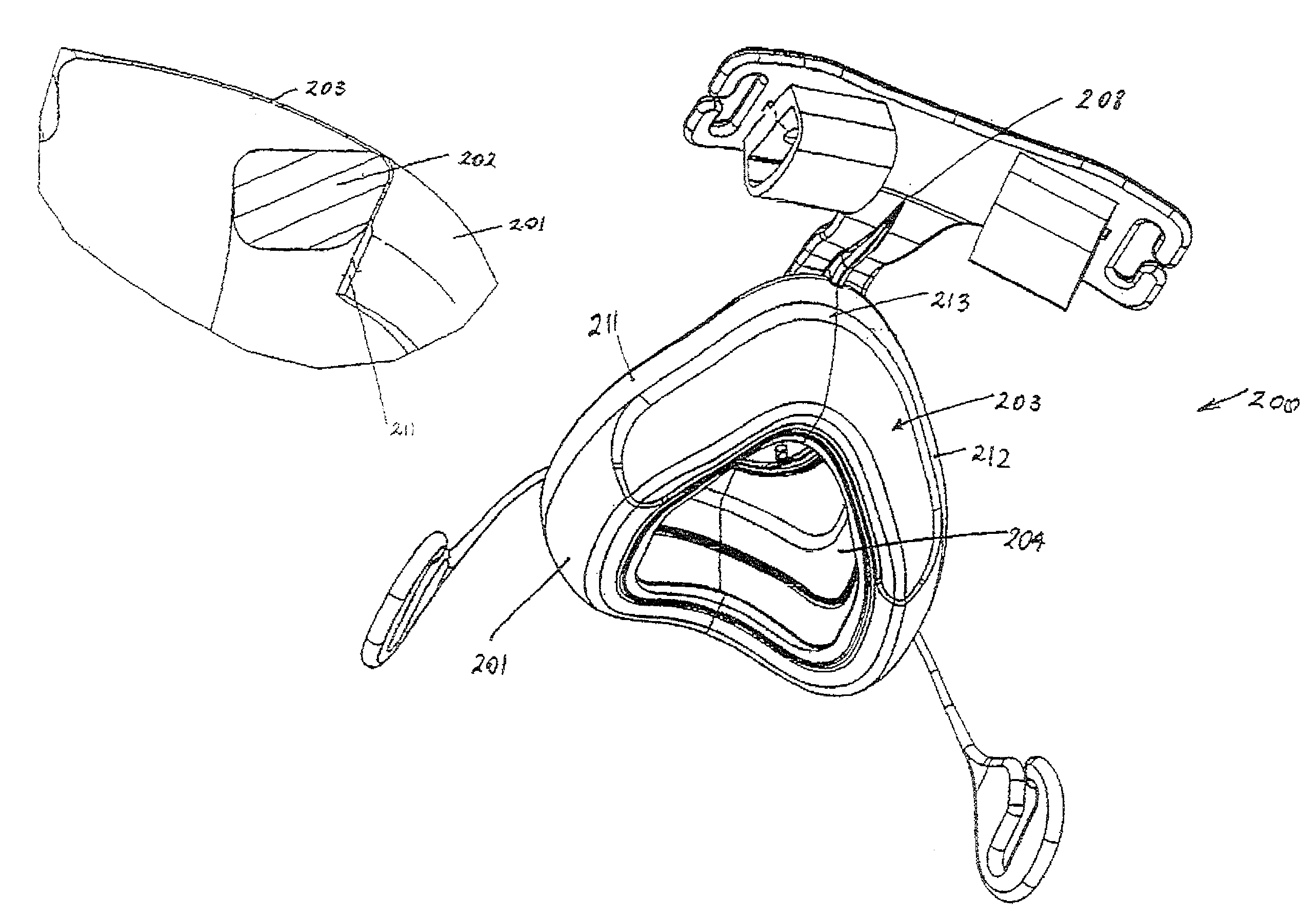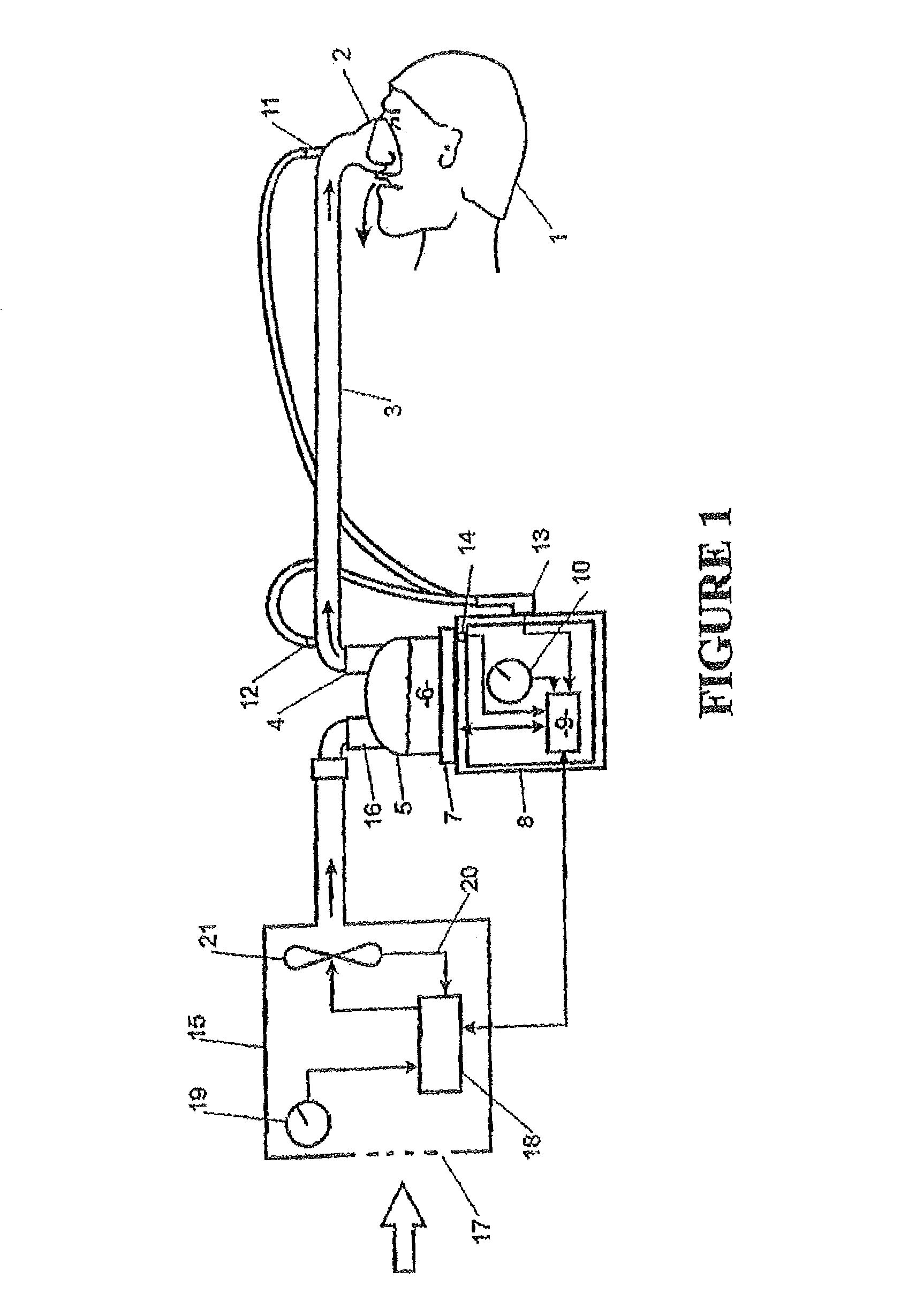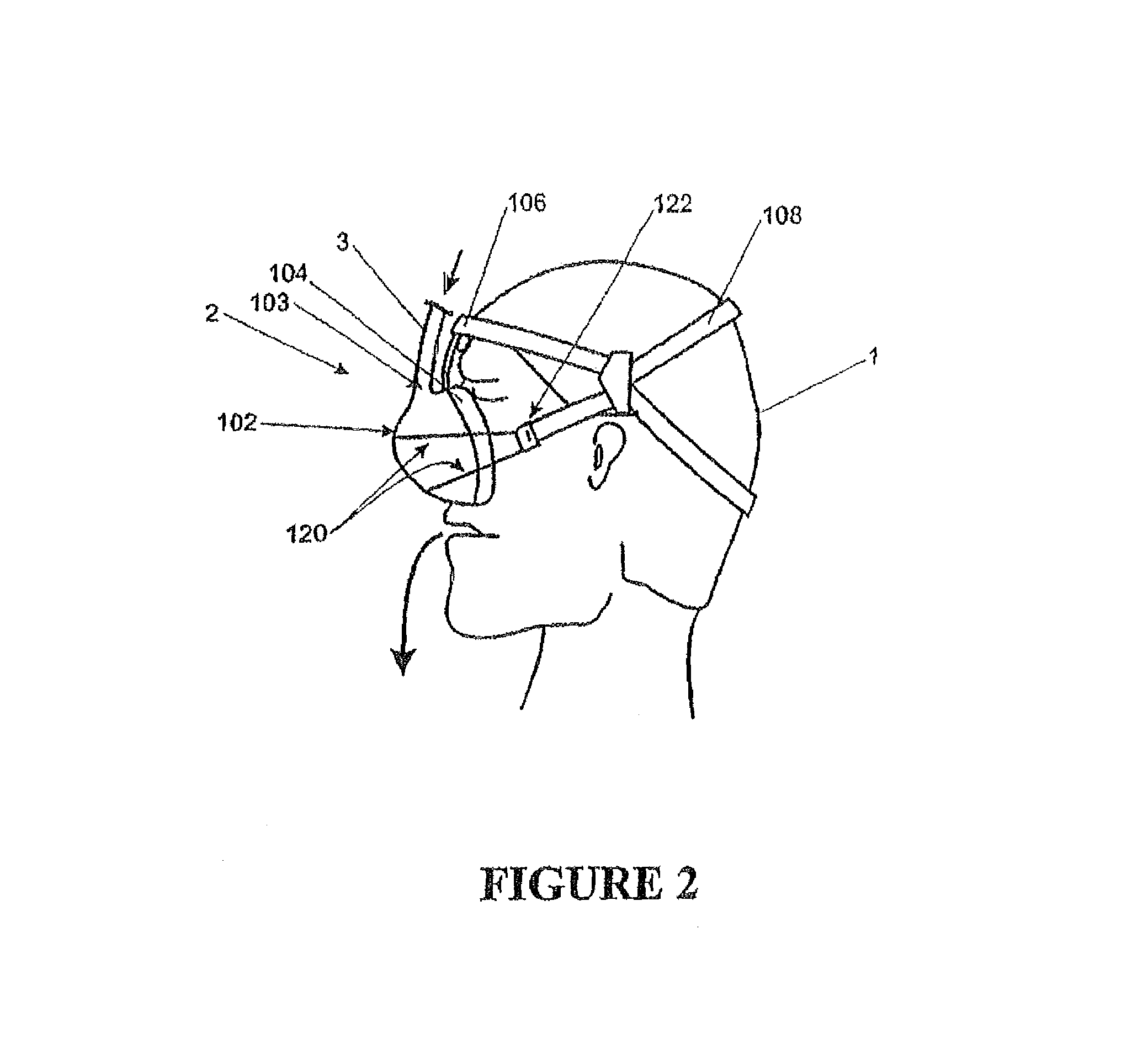Breathing assistance apparatus
a technology of assistance apparatus and breathing mask, which is applied in the field of patient interface, can solve the problems of inability to achieve optimal therapeutic or diagnostic objectives, user discomfort, and long duration of mask, and achieve the effect of optimum therapeutic or diagnostic objectives
- Summary
- Abstract
- Description
- Claims
- Application Information
AI Technical Summary
Benefits of technology
Problems solved by technology
Method used
Image
Examples
first embodiment
[0096]According to the present invention the patient interface is shown in FIG. 2 as a nasal mask. The mask includes a hollow body 102 with an inlet 103 connected to the inspiratory conduit 3. The mask 2 is positioned around the nose of the patient 1 with the headgear 108 secured around the back of the head of the patient 1. The restraining force from the headgear 108 on the hollow body 102 and the forehead rest 106 ensures enough compressive force on the mask cushion 104, to provide an effective seal against the patient's face.
[0097]The hollow body 102 is constructed of a relatively inflexible material for example, polycarbonate plastic. Such a material would provide the requisite rigidity as well as being transparent and a relatively good insulator. The expiratory gases can be expelled through a valve (not shown) in the mask, a further expiratory conduit (not shown), or any other such method as is known in the art.
[0098]Referring now to FIGS. 3 and 4 in particular, the...
second embodiment
[0102]A second preferred embodiment to the mask cushion is depicted in FIGS. 9 and 10. In the second embodiment the inner cushion 2000 includes a raised bridge 2002 in the nasal bridge region. The raised bridge 2002 can also be described as a cut out section made in the cushion. Also, the notch in the contacting portion (between the inner cushion and outer sheath) is less pronounced than, proceeding embodiments. However, as the raised bridge 2002 is unsupported it is much more flexible and results in less pressure on the nasal bridge of the patient. The outer sheath 2004 contacts the inner cushion 2000 throughout the raised bridge 2002. The peaks 2005, 2007, 2009, 2011 in the inner cushion 2000 between each of the indented sections 2006, 2008 and the raised bridge 2002 contact the outer sheath 2004 and when in use the sheath 2004 contacts the facial contours of the patient in the regions of these peaks.
[0103]Referring particularly to FIG. 10 the inner cushion 2000 includes a cheek c...
PUM
 Login to View More
Login to View More Abstract
Description
Claims
Application Information
 Login to View More
Login to View More - R&D
- Intellectual Property
- Life Sciences
- Materials
- Tech Scout
- Unparalleled Data Quality
- Higher Quality Content
- 60% Fewer Hallucinations
Browse by: Latest US Patents, China's latest patents, Technical Efficacy Thesaurus, Application Domain, Technology Topic, Popular Technical Reports.
© 2025 PatSnap. All rights reserved.Legal|Privacy policy|Modern Slavery Act Transparency Statement|Sitemap|About US| Contact US: help@patsnap.com



